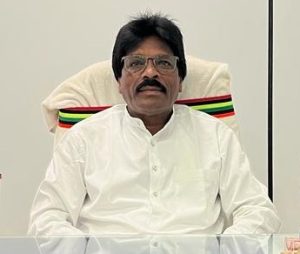There are different types of Central Govt. and State Govt. social security schemes.
National Social Assistance Programmes
The National Social Assistance Programmes (NSAP) which came into effect from 15th August, 1995 represents a significant step towards the fulfilment of the Directive Principles in Article 41 of the Constitution. NSAP at present comprises of Indira Gandhi National Old Age Pension Scheme (IGNOAPS), Indira Gandhi National Widow Pension Scheme (IGNWPS), Indira Gandhi National Disability Pension Scheme (IGNDPS), National Family Benefit Scheme (NFBS) and Annapurna Yojna. Objective: The programmes introduced a National Policy for Social Assistance for the poor and aims at ensuring minimum national standard for social assistance in addition to the benefits that states are currently providing or might provide in future.
Indira Gandhi National Old Age Pension
This is a Govt. of India funded Scheme where the beneficiaries receive a pension ® Rs. 300/- per month under the Scheme, out of which the state government bears Rs. 100/- per month per beneficiary. Persons above 80 years of age will recieve Rs.500/- PM.. Target Group: People in the BPL category with in the age of 60 years and above.
Indira Gandhi National Widow Pension
A centrally sponsored scheme implemented in the State where the beneficiaries receive pension ® Rs. 300/- per month under the Scheme. Target Group: Widows within the age of 40 years and above in the BPL category.
Indira Gandhi National Disabled Pension
This is a Govt. of India funded Scheme where the target group receives pension ® Rs. 300/- per month. Target Group: People living below the poverty line within the age group of 18-79 years with disa.
National Family Benefit Scheme
In the event of death of the primary bread earner of families living below the poverty line, the bereaved families are assisted with a financial assistance of Rs. 20,000/- . Target Group: Families of the deceased living below the poverty line.
Annapurna Scheme
The Annapurna Scheme aims at providing food security to meet the requirement of those senior citizens who though eligible have remained uncovered under the National Old Age Pension Scheme. The target group receives 10 kgs of food grains per month free of cost. Gol has fixed a numerical ceiling of 64,800 beneficiaries under the scheme for the entire State. Target Group: Senior citizens of 60 years and above, who are eligible for all old age pension schemes, but not covered under the same.
Madhubabu Pension Yojana
In January 2008, State Government merged two old schemes, namely, Revised Old Age Pension Rules, 1989 Et Disability Pension Rules, 1985 and introduced the Madhu Babu Pension Yojana Rules, 2008. Eligibility: A person will be eligible for pension if He/She- i. is of 60 years of age and above ii. Or, is a widow (irrespective of age) (WP) iii. Or, is a leprosy patient with visible signs of deformity (irrespective of age). iv. Or, is a person of 5 years of age or, above and unable to do normal work due to his/her deformity or disability being blind or, orthopedically handicapped or, mentally retarded or, with cerebral palsy. v. Or, a widow of AIDS patient (irrespective of age and income criteria mentioned under Rule 6(b). vi. Or, an AIDS patient identified by the State / District AIDS Control Society (irrespective of income as under Rule 6 (b). vii. has family income from all sources not exceeding Rs.24,000/- per annum (Tahasildar concerned to certify) viii. ls a permanent resident / domicile of Odisha. ix. Is not in receipt of any other pension from the union Government or the state government or any organization aided by either Government. Financial norms:
A. Rs 300(60-79 years) and Rs.500 (80 years and above) per beneficiary per month.
B. The pension due to beneficiary gets disbursed on 15th of every month, on JANA SEWA DlWAS in denomination of Rs 100 by BDO or any officer subordinate to BDO (in rural area) in Gram Panchayat office and by DSWO or any officer subordinate to DSWO at municipal office in the urban area.


